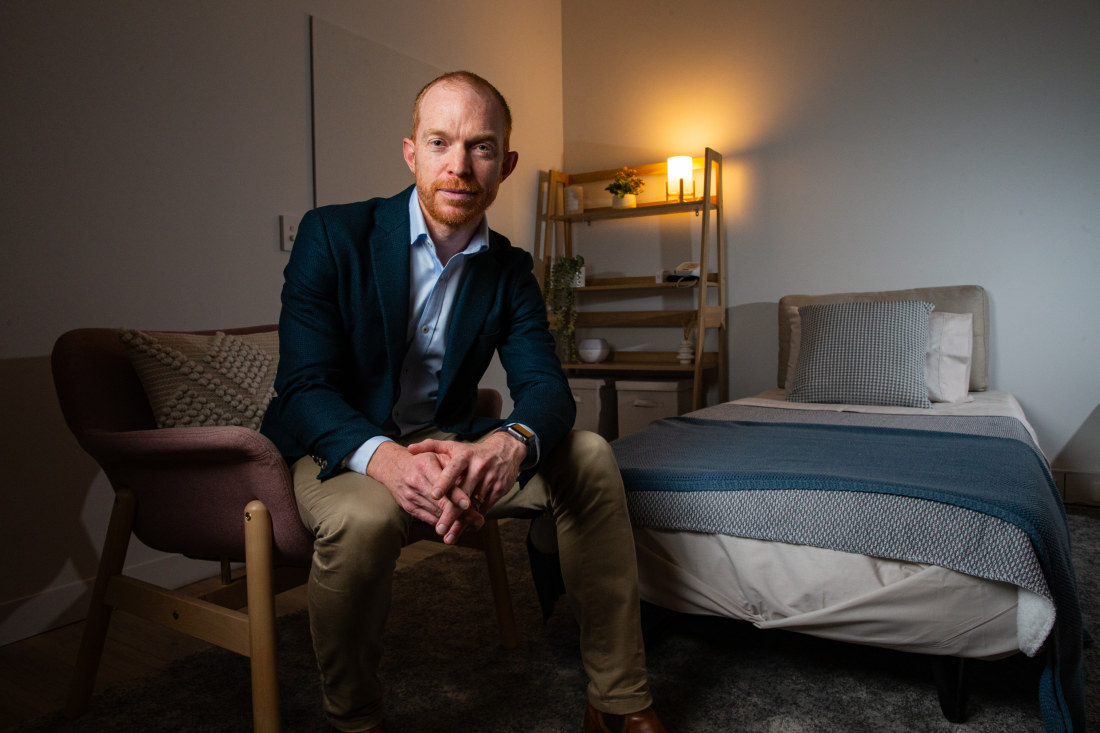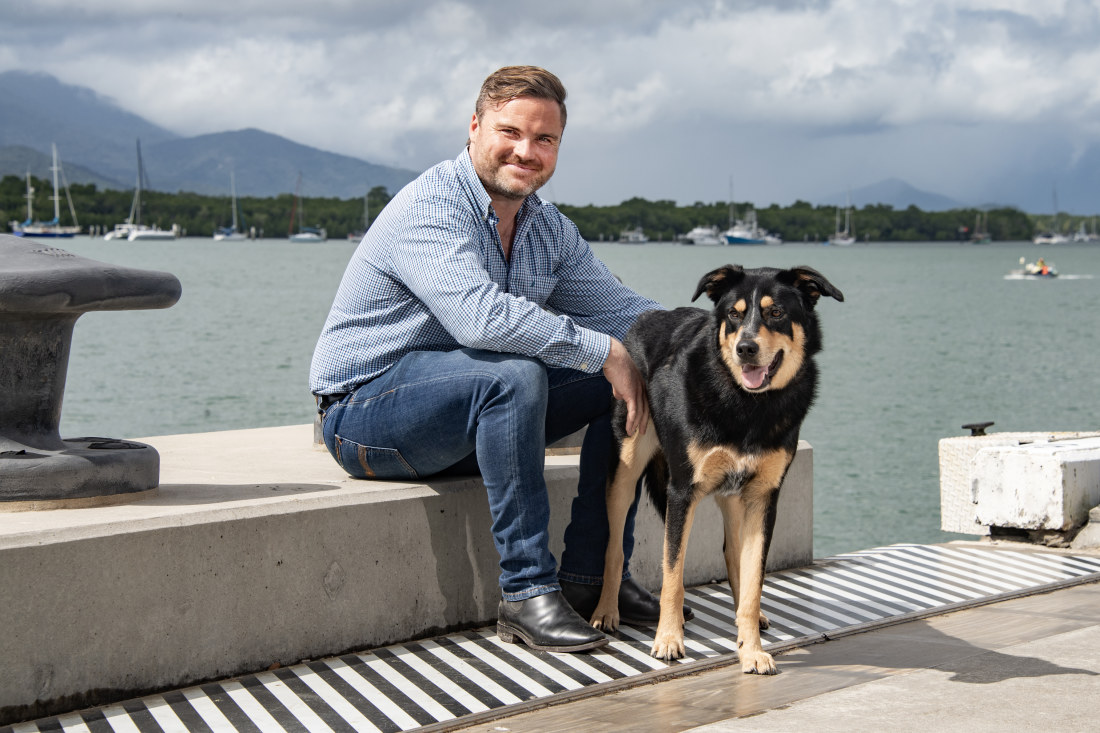That decision has sparked a wave of investment in what some in mainstream medicine still see as an unconventional way to treat mental illness. Australia’s first psychedelic treatment clinics opened this year, the son of a Canadian billionaire last month began importing legally produced psychedelics and big names in the business including Andrew Forrest and Gina Rinehart are pouring money into the fledgling industry. There are already clinics in Sydney, Melbourne and Perth.
The move to overturn decades-old bans and mainstream drugs typically associated with illegal recreational use will reach another milestone this weekend when the U.S. Food and Drug Administration decides whether to approve MDMA for the treatment of PTSD. . Lobbying in the US has increased in anticipation of the decision. It will have a big impact on Australia, which is currently ahead of the rest of the world with treatments.
“FDA approval will mark a dramatic shift in attitude toward these drugs from the ‘war on drugs’ to suddenly being an approved drug.” It will stimulate investment in the sector and give people the confidence to wade back in,” says Michael Winlo, chief executive of ASX-listed Emyria, which is backed by the billionaire Forrest family.
“For us in Australia, it is further reassurance that we are moving in the right direction and this represents a brand new way of dealing with mental health.” Australia have given themselves an advantage.”
The West Australian company, which received $5 million from the Forrest family’s Tattarang investment firm in 2021, was in January granted approved prescribed status by the TGA. It makes money from data collection and research, as well as treatments at its 10-room center in Perth. It has trained about 20 doctors and has started treatments for 12 patients so far.
“Andrew Forrest has been a supporter of ours for a number of years and really liked the model, which provides services that create knowledge that supports innovation,” says Winlo, a trained physician.
Other big names in the business are behind the use of psychedelics to treat what is described as a mental health epidemic at a time when treatments such as prescription drugs often fail.

Michael Winlo, chief executive of ASX-listed Emyria, in one of the company’s treatment rooms in Perth where patients are legally dosed with MDMA to treat PTSD. Ross Swanborough
JJ Wilson, the 35-year-old son of billionaire Chip Wilson, who founded the Lululemon yoga clothing empire, has invested millions of dollars of his own money and now most of his time into a Canadian company that makes legal MDMA and natural psilocybin. capsules for export.
Last month, Optimi Health, listed in Canada with a market capitalization of about $30 million, received an export license and began shipping drugs to Australia under a supply agreement with Hunt’s Mind Medicine. It is believed to be the largest shipment of legal psychedelic drugs, manufactured under strict control in Canada, to Australia.
“Australia is actually the first open market that can be claimed to have a product approved by patients. It’s a very open approach, which is really cool,” Wilson says by phone from his home in Vancouver. “The Netherlands is moving in that direction, but the United States is taking longer to advance.”
“The momentum is coming and different countries are becoming more open to the idea that people need help, people are suffering.
Wilson, who has described psychedelics as “the new yoga,” has started several lifestyle businesses since learning the ropes as a 15-year-old when his dad pulled him out of school to attend a Lululemon roadshow.
He first heard about psychedelics from friends during the COVID-19 pandemic and became convinced that using them to treat mental health issues was a huge business opportunity. Wilson will visit Sydney, where his family has a beach house in Bronte, in January to assess the market.
Expensive treatment
While Wilson’s company is one of the few suppliers in the world that can legally manufacture and supply psychoactive drugs, getting the drugs is the least of the industry’s worries. The push to legalize alternative therapies has been fraught with regulatory delays and controversy.
One barrier is the high cost of the treatments, and providers and charities are scrambling to find ways to make it accessible to lower-income Australians who are often hit hardest by mental illness.

Mental health entrepreneur Chris Raine with his dog Sunday in Cairns. Raine is working on a business plan to bring psychedelic drugs to regional Australia. Brian Cassey
A full treatment plan at Emyria’s Perth clinic costs almost $30,000. It includes about 90 hours with therapists and experts, which accounts for most of the cost. There is a rigorous initial screening process before patients are ‘dosed’. This involves two therapists sitting with a patient for eight to 10 hours in a specially equipped room. This is repeated two more times during the 12- to 16-week program, and there are extensive follow-up sessions.
The process of treating patients with psilocybin also involves two therapists being present for eight hours, at a total cost of about $20,000 over three months.
Chris Raine, co-founder of the Clean Slate Clinic, which uses telehealth to treat people struggling with alcohol abuse, says he hopes to make the treatments accessible to disadvantaged people living in regional areas.
“I would love to open [a clinic] in regional Australia rather than the city, and I’m in various conversations about it. The current structure makes it very expensive to access and it is not guaranteed. It’s a cost that needs to come down,” says Raine, who recently returned to Australia from the US where he has been studying psychiatry.
The issue is also dividing the medical profession. Some psychiatrists believe Australia has moved too fast and the long-term risks remain unclear. There was also criticism of MDMA drug trials in the United States this week in a The Wall Street Journal report that found some participants felt pressured to report positive results.
Hunt and de Jong’s Mind Medicine has been an industry pioneer, but it has also come under heavy scrutiny after ABC’s. Four corners in 2022 made allegations of abuse and exploitation, which Hunt and De Jong have denied. There has also been criticism within the medical sector of the intensive lobbying of the TGA, which received nearly 13,000 submissions during the approval process.
Rossell is critical of the submission process, saying the skeptics have drowned out their concerns with an effective lobbying campaign. She says that while the treatments work for some patients, up to 30 percent may experience a “bad trip” or other negative effects.
Hunt disagrees.
When you look at the number of people with depression or PTSD, the market potential is huge.
— Peter Hunt, founder of Mind Medicine Australia
“From time to time we get tips that Peter, the investment banker, must be trying to make some money off of this. We are not. This is purely humanitarian work,” says Hunt.
“The people who got upset had a huge vested interest in the status quo.” The challenge we face in our mental health system is that it is not a very good system in terms of treatment outcomes. People with depression have a one-third chance of going back into remission.”
The global market for conventional mental health drug treatments is worth about $25 billion, but they are often ineffective in treating the rising rates of mental illness, which can end in suicide. Mental health is now the most common chronic condition in Australia, according to the Australian Bureau of Statistics.
“When you look at the number of people with depression or PTSD, the potential in the market is huge,” says Hunt.
Another Perth company, Reset Mind Sciences, is also investing in psychiatry. It is a subsidiary of Rinehart-backed, ASX-listed Little Green Pharma. In February, it was forced to withdraw a fundraising bid because UK funds are banned from investing in drug-assisted psychotherapy. That decision highlights some of the funding challenges facing the industry.
The impending FDA decision will also change the dial. Says Winlo, “It will give confidence to payers, our regulators and providers that there is something—and I can say firsthand how impactful and in some cases it can be transformative.”
#Meet #billionaires #support #Australian #psychedelics